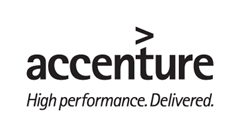Making procurement ‘smarter’ to drive economic growth
 Darren Lynch, Head of Operations Functional Excellence at Accenture, sets out six proposals for how procurement can save money and drive growth.
Darren Lynch, Head of Operations Functional Excellence at Accenture, sets out six proposals for how procurement can save money and drive growth.
When Dick Fosbury won an Olympic gold medal in 1968, it wasn’t just his innovative approach to the high jump that created a piece of sporting history. The development of softer, deeper foam matting that considerably improved the landing surface and safety for jumpers enabled them to reach new milestones in the sport.
Accenture believes public service executives also need to aim high, using innovative, connected procurement techniques to cushion the impact of turbulent times and help drive economic growth.
As government agencies worldwide face crushing debt and declining revenue, it is a natural step to turn to procurement as a means to save money. Detailed analyses of reported fiscal balance and public sector procurement information suggest that many government agencies could dramatically pare their deficits by increasing procurement efficiency. In fact, Accenture comparisons have shown a 10 per cent reduction in public procurement costs translating to a 1 per cent to 3 per cent budget improvement relative to Gross Domestic Product (GDP).
In conjunction with any procurement cost reduction initiative, public sector leadership needs to be mindful of the potential trade-offs between reducing bottom-line costs and supporting economic growth and sustainability targets.
The local economy is directly impacted by government spending through the sourcing of goods and services from non-governmental providers. In Northern Ireland alone, public sector spending accounts for over 50 per cent of GDP so policy-makers need to consider the potential trade-offs that singular focus on cost reduction can have on the long-term development of the local economy.
Yet often challenged by a fragmented operational model and the need to continue to serve the public well, governments are realising they need to embrace a new approach to break records: employing mission-critical procurement to achieve better business outcomes.
So how can leaders in the public sector think beyond the traditional bottom line to enable procurement to reduce cost, support economic growth and deliver sustainable, ecological benefits?
Our view at Accenture is that the public sector procurement community needs to re-evaluate both its structure and capabilities in order to achieve significant cost reductions and alleviate the potential negative impact of cutbacks in headcount and services.
The following six initiatives come from Accenture’s ‘Research and Insights into Procurement Performance Mastery’. These can help make cost reductions a reality and enable sustainable economic growth.
Leverage cloud computing
Beyond having scant access to information, most governments’ decision-making is highly decentralised and does not typically excel at collaborating across departments and organisations. Cloud computing could help government procurement introduce a single coding standard for classifying spend, one collaborative approach to buying, and a lone infrastructure for analysing and reporting information across agencies. In addition, many cloud-based services are available that traverse a procurement organisation’s complete source-to-pay cycle.
Create an Amazon.com approach to government
Government procurement departments are often numerous with minimal co-ordination, duplicated services and troublesome governance issues. The situation in Northern Ireland is much less haphazard than the norm with a few Centres of Procurement Excellence (CoPEs) already in place, underpinned by solid governance structures. However, there are some innovative lessons that can be learned to make procurement in Northern Ireland work even better.
In adopting an amazon.com approach, procurement could define a set of categories (various forms of short-term consumables generally work best) and appoint an outside entity to manage the purchase of items in those categories. Within the category, that ‘Amazon-like’ entity consolidates demand for items across government departments and then interacts with the supply base, making sure that price and logistical economies are fully captured.
Create a procurement ‘middle office’ capability
Government procurement operations by their very nature tend to be divided: large numbers of small and widely scattered operations. Consolidating operations further by extending CoPEs such as the Central Procurement Directorate (CPD) and PaLS (Procurement and Logistics Service) for example into a ‘middle office’ that could also serve lower-cost areas could reduce facilities costs, lower headcount, eliminate redundant activities, encourage on-contract buying, process standardisation, and simplify the task of enacting and measuring continuous improvements.
At Accenture, researchers have determined that a potential 30 per cent reduction in procurement operating costs could be achieved by implementing a middle office or shared services centre for procurement from scratch.
Leverage supplier relationship management
Government contracts tend to be very long-term. It is not unheard of for vendors to have a ten-year contract with a government department. Moreover, these contracts generally are highly specific and quite inflexible.
Procurement should consider building additional supplier-performance, continuous improvement and even market-change stipulations into their long-term buying contracts to manage risk and ensure the optimal value is being achieved over the term of the contract.
Adopt a zero-based budgeting approach
Zero-based budgeting is a method of budgeting in which all expenses must be justified for each new period. This stands in direct contrast to most governments’ typical approach, which is to take last year’s budget and tweak it to accommodate changing circumstances.
Starting with a procurement analysis, a new cost profile is created. This forms the basis of a reinvented procurement budget that is built from the bottom up. In Accenture’s experience this could be up to 50 per cent lower than the previous year.
Professionalise the workforce
Procurement needs to be developed as a profession to attract and retain the best people. Building and broadening the skills of staff is seen as a key enabler to this. The CoPEs already in place in Northern Ireland do engender a high degree of professionalism in their staff but there are always new ways to keep expertise up to the minute, in an ever-changing environment.
E-learning provides government with far richer, more-comprehensive and individualised opportunities to keep government procurement professionals on the leading edge. These training programmes are technology based, using e-learning to provide more-thorough training experiences focused on specific needs, when and where the need is concentrated. These programmes may actually provide even greater benefit to government agencies which are often more fragmented than operations in the private sector.
Conclusion
Innovations in sourcing and procurement have broad potential to improve an organisation’s performance. This has been proven many times in the private sector. Moreover, it is clear that:
1. there is a striking need for new procurement operating models in public sector procurement;
2. there is more ‘information transferability’ (private sector learning) than government entities appreciate; and
3. the benefits associated with improved government procurement may be more abundant and fruitful than even those available to private sector companies.
Implementing any one of the six initiatives identified above will have significant potential to reduce a government agency’s operating costs. However, implementing all could radically change a government organisation’s cost management performance, reduce the total cost to serve and thus help improve economic conditions. Given the cost-reduction pressures that so many governments are currently feeling, the right time to pursue these initiatives could very well be now.
 For further information, contact:
For further information, contact:
Darren Lynch, Accenture Management Consulting
Operations Functional Excellence Practice
1 Grand Canal Square
Dublin 2
Email: darren.lynch@accenture.com





